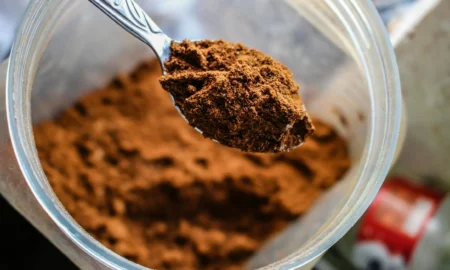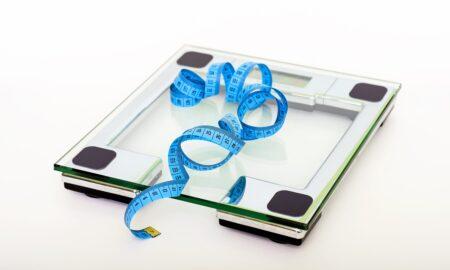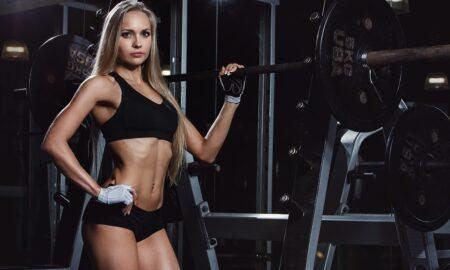I really don’t care how much weight you lift, and you shouldn’t care how much weight I lift—or how much anyone else does either. I know it sounds pretty rude when I say it like that, but I can’t help noticing how much importance the current generation of aspiring bodybuilders seems to place on how much weight they use during training. All over YouTube you’ll find hundreds of thousands of strength demonstrations by guys getting inspiration from power-monger pro bodybuilders like Branch Warren, Johnnie Jackson and Ronnie Coleman, all of whom heft amounts of iron far beyond the ability of most mortals.
I’m not saying people shouldn’t be proud of their achievements in gaining strength. Besides, you do need to become progressively stronger if you want to get bigger. But here’s the thing: Bodybuilding is a purely visual “sport.” I hesitate at times to call it a sport, because it really has a lot more in common with beauty pageants. No athletic performance is being judged. Posing is involved, but the point of that is to display the physique so that its development can be compared to the development of others.
If Joe has excellent leg development and Bob has terrible legs, it doesn’t matter one bit that Bob can squat twice as much as Joe does. I recall competing in the New England one year in the heavyweight division. One of the men in my class had won several big powerlifting titles, and I believe his best squat was up around 800 pounds. The most I’ve ever squatted for a single deep rep with no help from a spotter probably wasn’t even 500 pounds. Yet my legs were far more developed than his, with better overall size and shape. On that stage on that day, the fact that he could squat twice as much weight as I could was completely irrelevant. Had we been in a powerlifting or Olympic lifting meet, strength would have been the only relevant criterion. Having a great physique in those sports means nothing.
I recall years ago attending a regional qualifier for the World’s Strongest Man competition. Before it began, I was checking out the competitors and trying to guess who would dominate. Knowing nothing about that sport, I focused on a guy who was built like a pro bodybuilder and assumed he would be the one to beat. As the day went on, I realized how ridiculous that assumption had been. That man did quite poorly, while the best athletes were on the taller, lankier side, in comparison.
Yes, you should constantly strive to become stronger as a bodybuilder, but I caution against making that the total focus of your training at the expense of feeling the muscle work and getting a deep burn and pump. I see a lot of young guys posting videos of maximum squats, deadlifts and bench presses, and some of the numbers are indeed impressive. Yet those men are ostensibly bodybuilders, and they don’t have the type of leg, back or chest development you’d expect. That’s because they’re not training to stimulate muscle growth. Instead, they’re obsessed with getting stronger and are taking the fastest route—by training with very low reps. So they’re getting stronger basically by training the nervous system but doing hardly anything to stimulate the muscle fibers to grow.
Muscles need a certain amount of time under tension for growth stimulus to occur. Just how much is required is forever up for debate, but the vast majority of trainees seem to experience very good results using sets in the eight-to-12-rep range for the upper body and anywhere from 10 to 20 reps for the lower body.
Not all of you are bodybuilders or even want to be, but most of you do seem to want to be bigger. If that’s the case, I urge you to rethink your workouts and take a look at what you’re focusing on. Using progressively heavier weights in a rep range that’s ideal for growth, along with proper nutrition, rest and a few key supplements like a protein powder and a creatine product, will get you bigger muscles.
Should you fail to stimulate the muscles sufficiently because you insist on continuing with very-low-rep training in order to see more rapid strength gains, you’ll probably be very disappointed with your results in terms of muscle growth. If being strong is the most important thing to you, by all means stay on that course. If what you really want is an impressive physique that looks strong, however, you need to stop worrying about using as much weight as possible.
How much weight should you lift? As much as it takes to stimulate muscle growth. If the weight is heavier than it used to be, that’s something to be proud of whether it’s more or less weight than what the guy next to you is using.
Bottom line: If you consider yourself a bodybuilder, the weights are never more than a tool for building your physique. In and of themselves, they mean absolutely nothing.
Editor’s note: Ron Harris is the author of Real Bodybuilding, available at www.RonHarrisMuscle.com.




















You must be logged in to post a comment Login